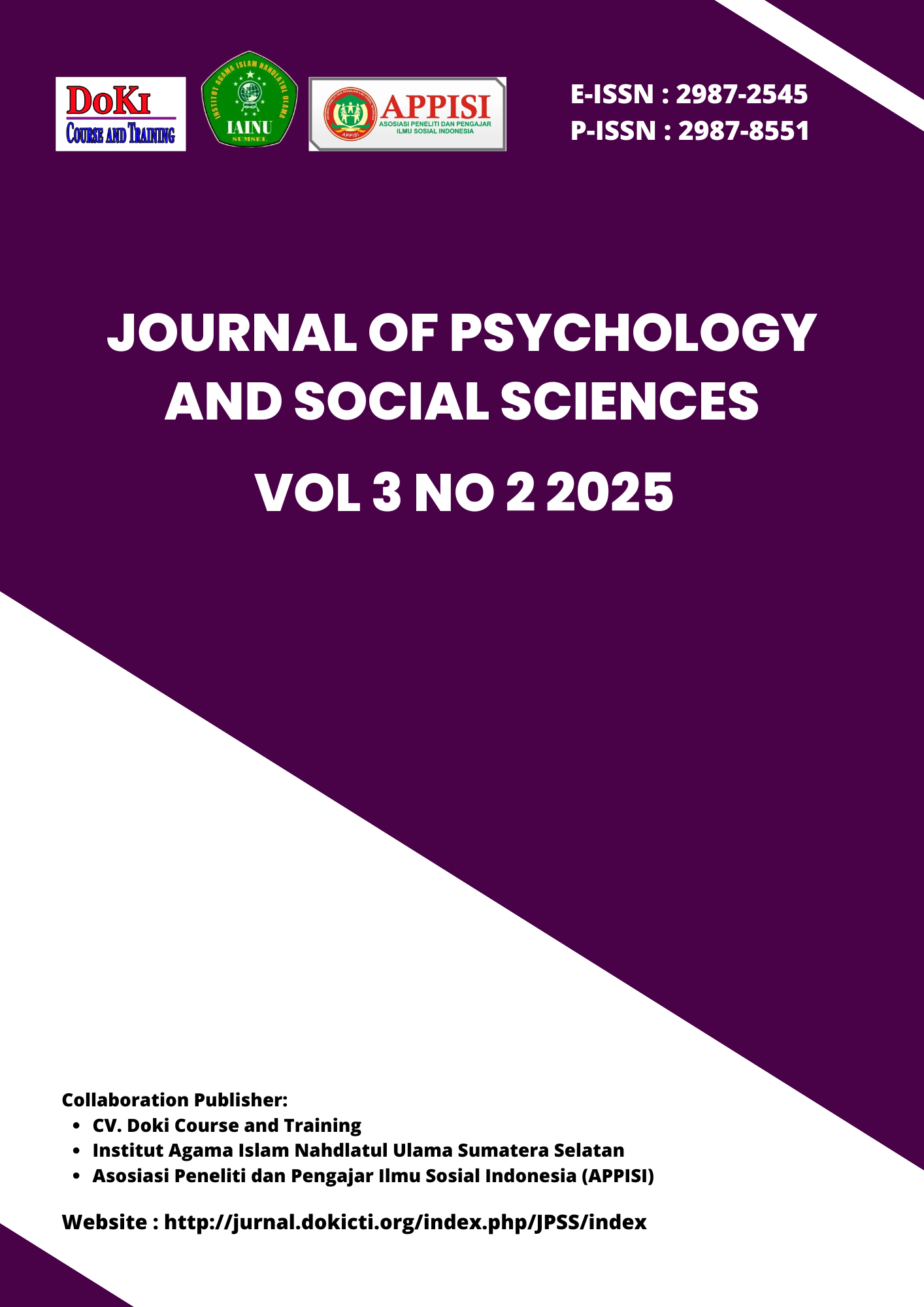Out Of Sync: The Emotional and Social Cost Of Living Ahead Or Behind One’s Time
DOI:
https://doi.org/10.61994/jpss.v3i2.1081Keywords:
cultural dissonance, identity and belonging, phenomenological research, temporal misalignmentAbstract
This study deals with the emotional and social outcomes brought upon individuals who consider themselves as temporally misaligned either behind or ahead of the prevalent cultural and ideological standards at that time. Based on the cultural lag theory (Ogburn, 1922) and existential psychology (Yalom, 1980), this study examines the influence of temporal dissonance on identity, belonging, and well-being. The paper adopted a phenomenological research design in the form of in-depth semi-structured interviews with sixteen respondents, divided into two groups: those who consider themselves traditionalists and are finding it challenging to adjust to the changes of modern times, and those who consider themselves visionaries and are getting upset about the pace of social change. A thematic analysis unveiled these five major findings: temporal alienation, social misrecognition, emotional burden, tension in identity, and coping mechanisms wherein different belief systems led to identical underlying experiences of psychic pain and marginalization. Many also showed strengths by creating different value systems and support groups. These results suggest that time not being in line is a meaningful way of looking at who a person is and how they feel, and it should be studied more in the fields of culture and psychology.
References
Ahmed, R., & Singh, N. (2023). Cultural progressives and symbolic invisibility: Identity friction in conservative contexts. Journal of Cultural Psychology, 29(2), 145–162. https://doi.org/10.1177/1354067X231234567
Braun, V., & Clarke, V. (2006). Using thematic analysis in psychology. Qualitative Research in Psychology, 3(2), 77–101. https://doi.org/10.1191/1478088706qp063oa
Heim, M., & Ziegler, D. (2022). Tradition in flux: Anxiety and resistance in the face of cultural change. Sociology and Society, 56(4), 359–375. https://doi.org/10.1080/00380253.2022.2078910
Kavoori, A. (2021). Revisiting cultural lag: A micro-sociological perspective. Journal of Social Theory, 48(1), 22–39. https://doi.org/10.1080/14735784.2021.1956782
Mannheim, K. (1936). Essays on the sociology of knowledge (P. Kecskemeti, Trans.). Routledge & Kegan Paul.
Moustakas, C. (1994). Phenomenological research methods. Sage Publications.
Ogburn, W. F. (1922). Social change with respect to culture and original nature. B.W. Huebsch.
Rosa, H. (2020). The uncontrollability of the world (J. C. Wagner, Trans.). Polity Press.
Smith, T., & Delaney, L. (2021). Ideological dissonance and the erosion of identity: A qualitative study of cultural misalignment. Qualitative Psychology, 8(3), 215–230. https://doi.org/10.1037/qup0000185
Tsoukalas, T. (2020). Out of time: Generational friction and temporal identity in post-globalization societies. Cultural Sociology, 14(1), 3–21. https://doi.org/10.1177/1749975520902319
Yalom, I. D. (1980). Existential psychotherapy. Basic Books.
Downloads
Published
Issue
Section
License
Copyright (c) 2025 Morteza Amirsheibani, Otabek Yo'ldoshev Abdug'aniyevich

This work is licensed under a Creative Commons Attribution-ShareAlike 4.0 International License.















